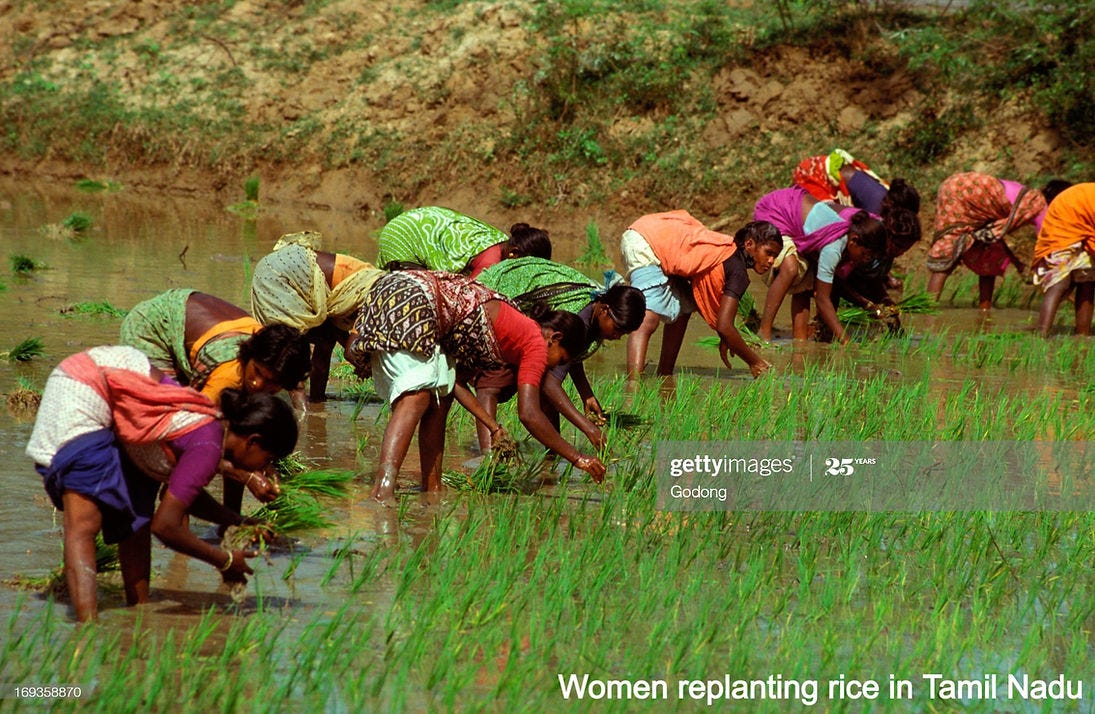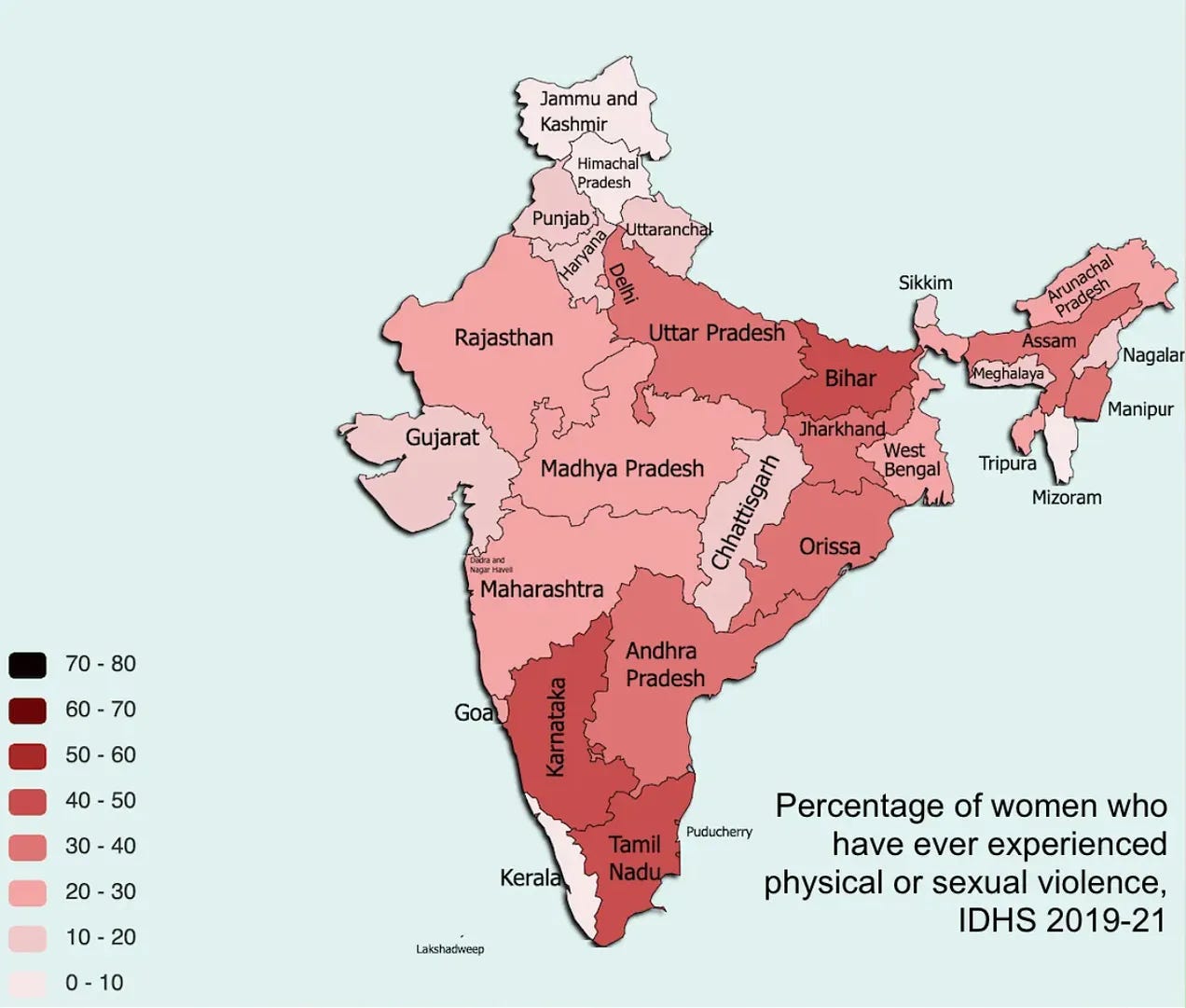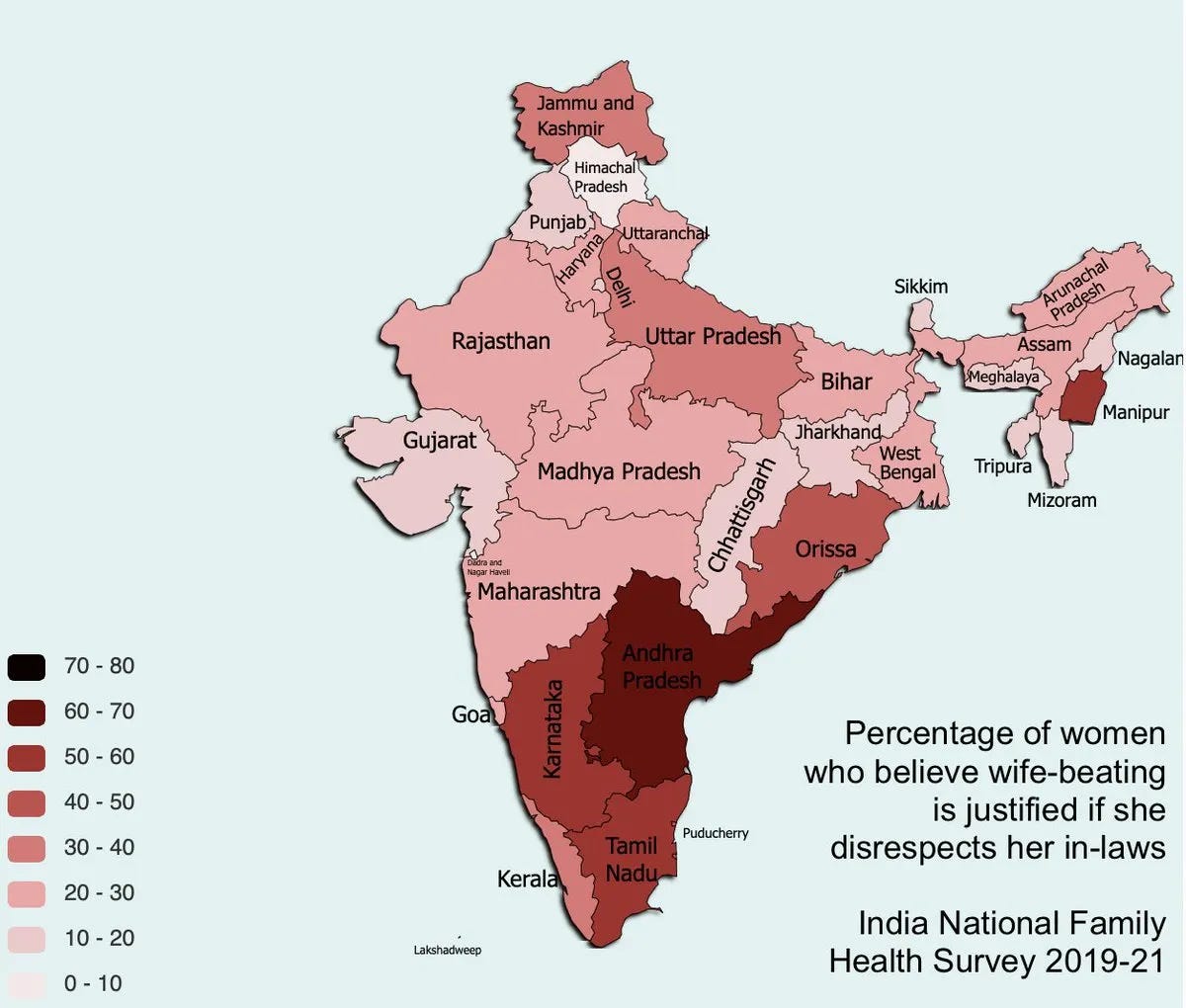Does Rice-Cultivation promote Gender Equality?
“But I thought rice was associated with greater gender equality?” - asked an Indian reader.
Well, rice is labour-intensive. It requires the construction of tanks and irrigation channels, planting, transplanting, and harvesting. Labour demand may have encouraged both:
Female labour force participation, and
Close-knit interdependence, collectivism, and conformism.
Rice is the staple crop in both Southern India and Southern China. Women were needed in the fields. Over the centuries, women’s work became normalised in regions growing rice, and thus persists outside agriculture.
But such farm work does not necessarily erode beliefs that men are high status, knowledgeable authorities. Rural women's contributions are scarcely considered 'work' by men, and sometimes, even by women themselves. Women may work long days in the fields, while remaining vulnerable to male violence.
Labour-intensive rice-cultivation may have simultaneously motivated interdependence and close-knit bonds of kinship. Family ties were consolidated through inter-marriage, while divorce was totally stigmatised. Girls were socialised to marry, please their in-laws and endure any abuse.
Close-knit interdependence also sustains intense social policing, which inhibits individual dissent. Families are so enmeshed in social networks that they socialise their children to conform.
If people are extremely concerned for social approval and the normative ideal is that men are high status providers, then female labour supply may respond weakly to economic growth. Even though families would benefit economically by sending their daughters to factories, they may extremely anxious about rumours of impropriety and gossip that could disgrace their family and ruin future marriages. They are caught in a collective action problem, which I call “The Patrilocal Trap”.
Trapped in this negative equilibrium, agricultural mechanisation (like seed drills) may displace women’s farm work, while higher wages enable men to gain status as breadwinners.
One cannot understand a society’s gender relations by focusing myopically on one dimension (labour). We must be more holistic.
Even if high demand for agricultural labour got women out of the home, it may have simultaneously kept them trapped in abusive marriages, and perpetuated cultural conformism. So even as Tamil Nadu prospers economically, families may still keep their daughters in line.








Southern India's endogomy probably prevent female empowerment beyond employment. What about Bangladesh where endogomy rates is much lower? Obviously you have to control for the impact of Islam.
Hi, I’m still thinking about family/social organization, and if you could lead me to some readings about crops and families, or nomad husbandry and macho attitudes… that’ll be great!